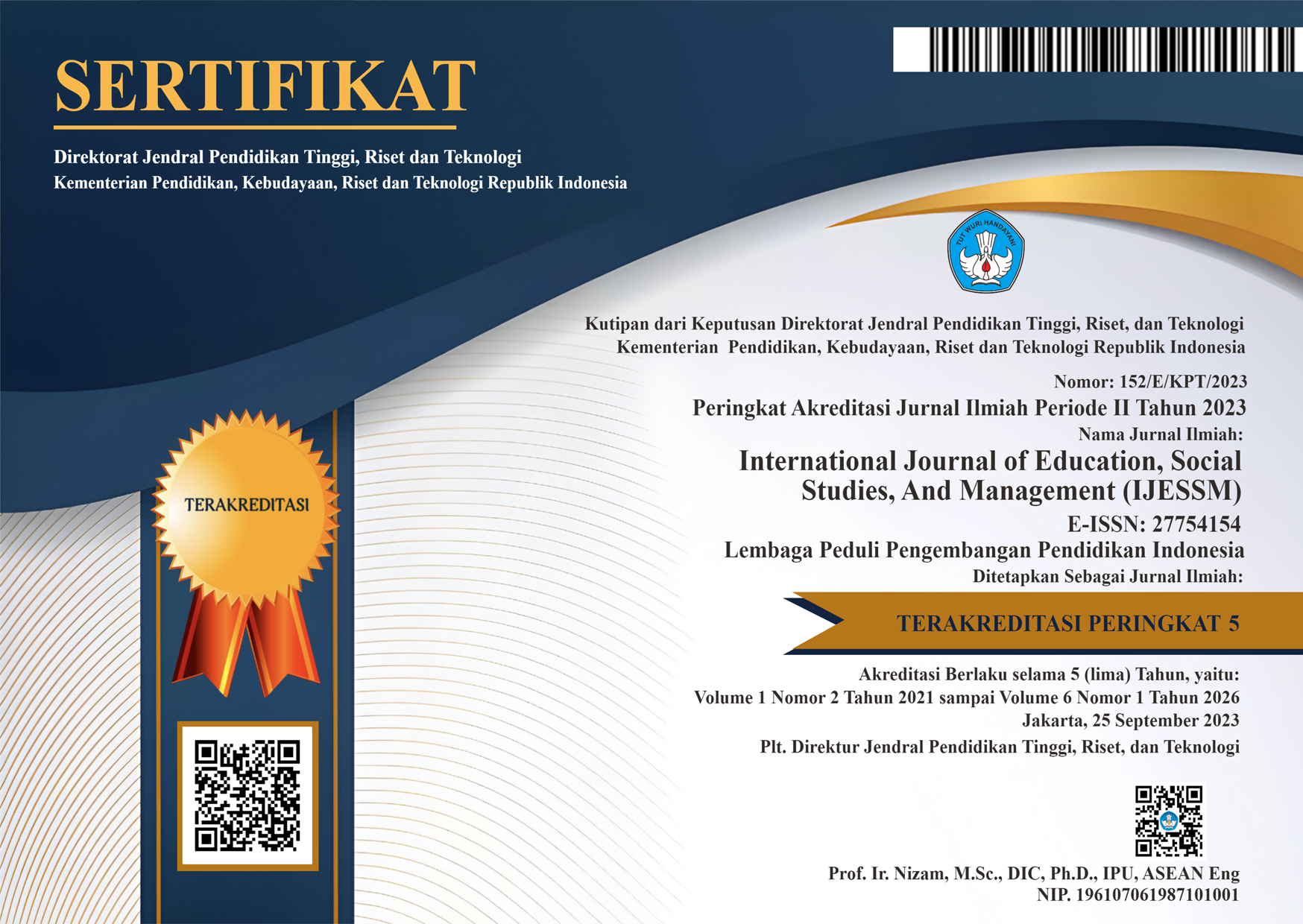Analyzing Bibliometric With The Fields Of Resilience And Entrepreneurship In Indonesia
DOI:
https://doi.org/10.52121/ijessm.v2i1.65Keywords:
Resillience, Entrepreneurship, Bibliometric, Implementing, IndonesiaAbstract
Resilience theory in started of an examination has created into a wide, energetic and energizing field of ponder. Current strength hypothesis addresses people (both children and grown-ups), families, communities, working environments and approaches are connected with human creatures related to social terms and political conditions. There are a few zones of life that have not been touched in one way or another by resistance hypothesis, counting the military community. In this research, analyzing the resilience pretending to impelemntation enterpreneur. This research using bibliometric method by the index of Scopus anda data analyse using the Vosviewer. In enhancing the strategy for developing resilience reveal that an economist uses the term 'standard human capital' to mean that human capital is a resource in people in the form of skills, knowledge and abilities that significantly affect their productive capacity and which determines individual employability. Human Resource Management or is a critical perspective related to resilience theory that is not only included in the company's philosophy but also in the strategic planning process. An example of human resource management is planning, organizing, directing and controlling the procurement, development, compensation, integration, maintenance and termination of labor relations with a view to helping achieve company, individual and community goals
Downloads
Published
How to Cite
Issue
Section
License
Copyright (c) 2022 International Journal Of Education, Social Studies, And Management (IJESSM)

This work is licensed under a Creative Commons Attribution 4.0 International License.

















